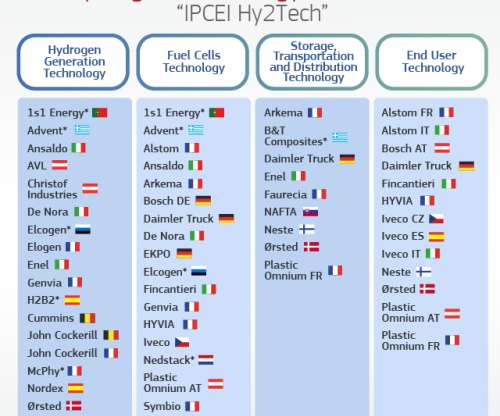Researchers in Belgium develop new class of solid composite electrolytes for Li-ion batteries: Eutectogels
Green Car Congress
MARCH 9, 2018
Researchers at Hasselt University in Belgium are proposing a new class of solid composite electrolytes (SCEs) for Li-ion batteries: deep eutectic solvent (DES)–silica composites. However, they benefit from additional advantages such as ease of fabrication and low cost of components. —Joos et al.












Let's personalize your content